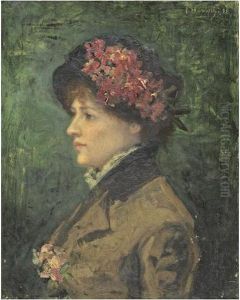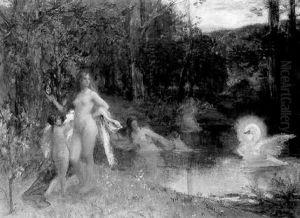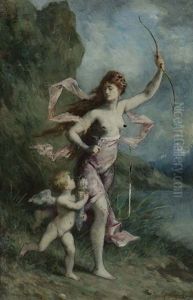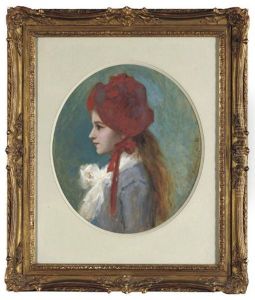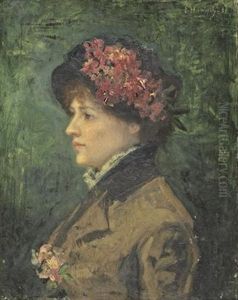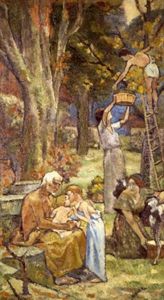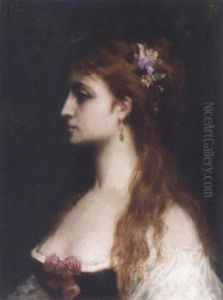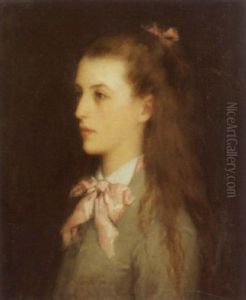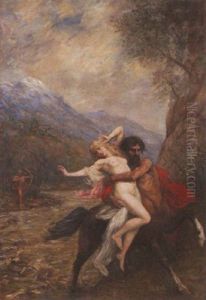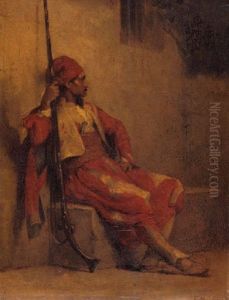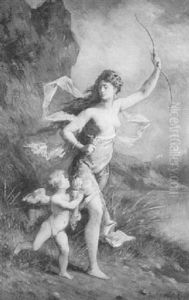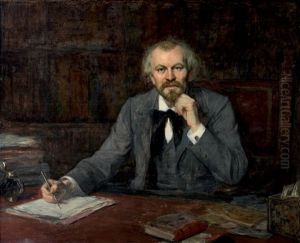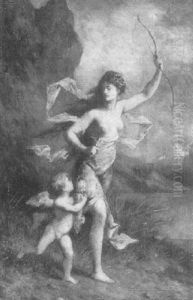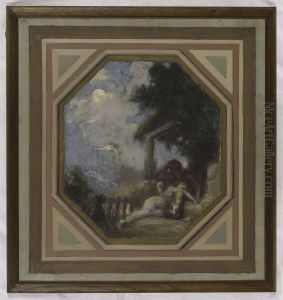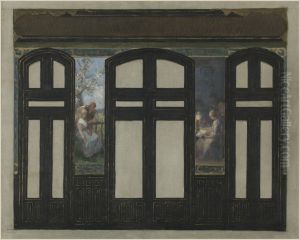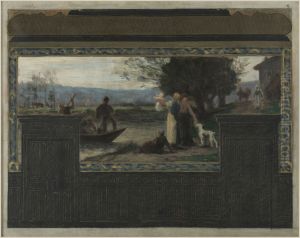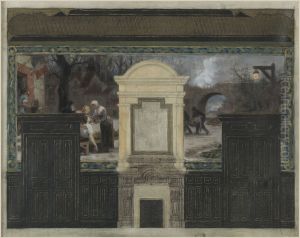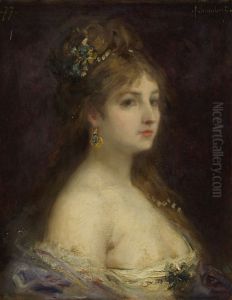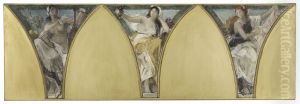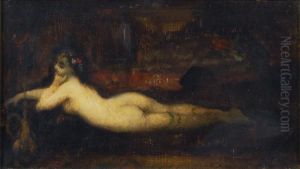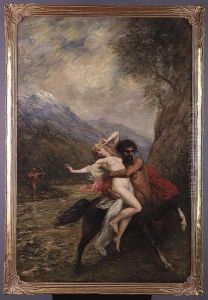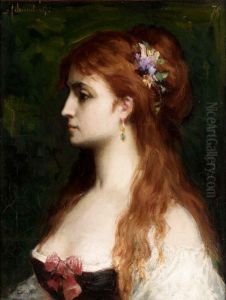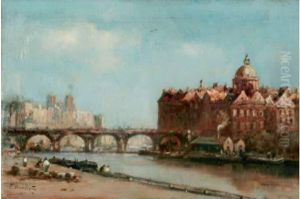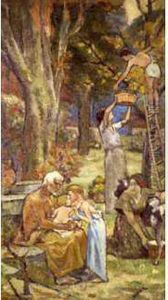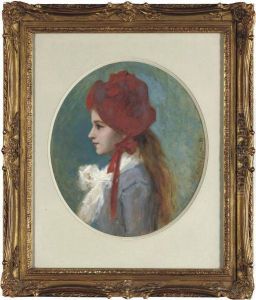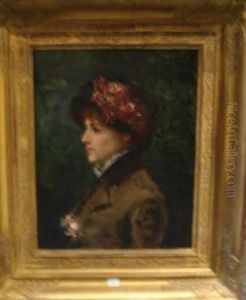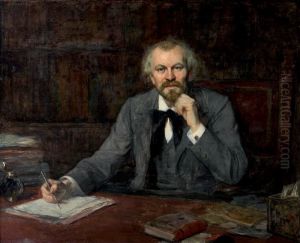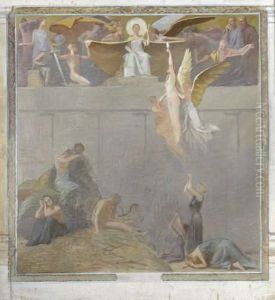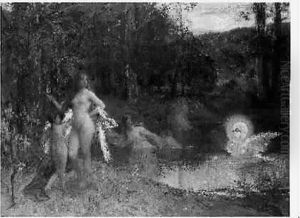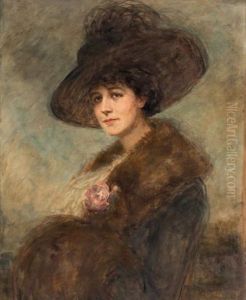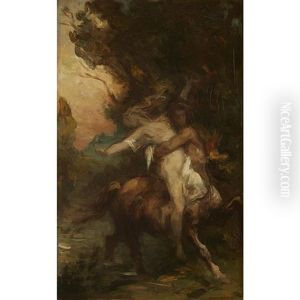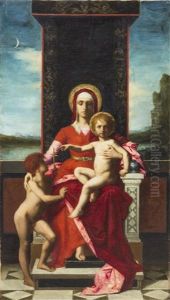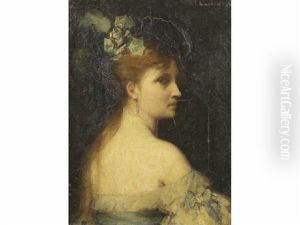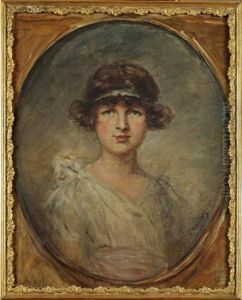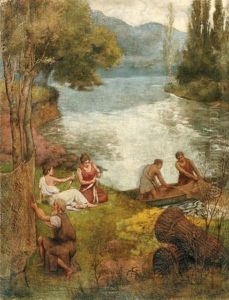Ferdinand Humbert Paintings
Ferdinand Humbert was a French painter, born on July 28, 1842, in Paris, France. He was known for his academic style and his works that often included historical and mythological themes. Humbert studied at the École des Beaux-Arts in Paris under the tutelage of François-Édouard Picot and Alexandre Cabanel, two prominent academic painters of the time. His education was steeped in the traditional techniques and classical approach to art, which greatly influenced his later work.
Humbert's career began to gain recognition after he won the prestigious Prix de Rome in 1863, which allowed him to study in Rome at the Villa Medici for several years. During this period, he was exposed to the masterpieces of the Renaissance and antiquity, which further shaped his artistic direction. Humbert's paintings from this period exhibit a strong attention to detail, a harmonious use of color, and a focus on idealized human forms, typical of the academic style.
Upon returning to France, Humbert continued to work within the academic tradition, participating in the annual Salon exhibitions, which were the official art exhibitions of the Académie des Beaux-Arts in Paris. His works were well received, and he garnered several medals and honors for his paintings. Humbert's subjects were often inspired by literature, history, and religious stories, reflecting the tastes and interests of the academic and bourgeois audiences of his time.
In addition to his painting career, Humbert became a respected educator. He was appointed as a professor at the École des Beaux-Arts, where he influenced a new generation of artists. His teaching emphasized the importance of drawing and the study of the old masters, which he believed were fundamental to the creation of great art.
Throughout his life, Humbert was committed to the principles of academic art, even as the art world around him began to change. The late 19th and early 20th centuries saw the rise of Impressionism and other avant-garde movements that challenged the established norms. However, Humbert remained a steadfast proponent of the traditional values of art.
Ferdinand Humbert passed away on January 3, 1934, in Paris. Although his work may not be as widely remembered as that of his contemporaries who embraced modernism, he left behind a legacy of finely crafted paintings and a significant impact on the students he taught. Humbert's dedication to academic art provides an important insight into the art and culture of the late 19th-century France.
